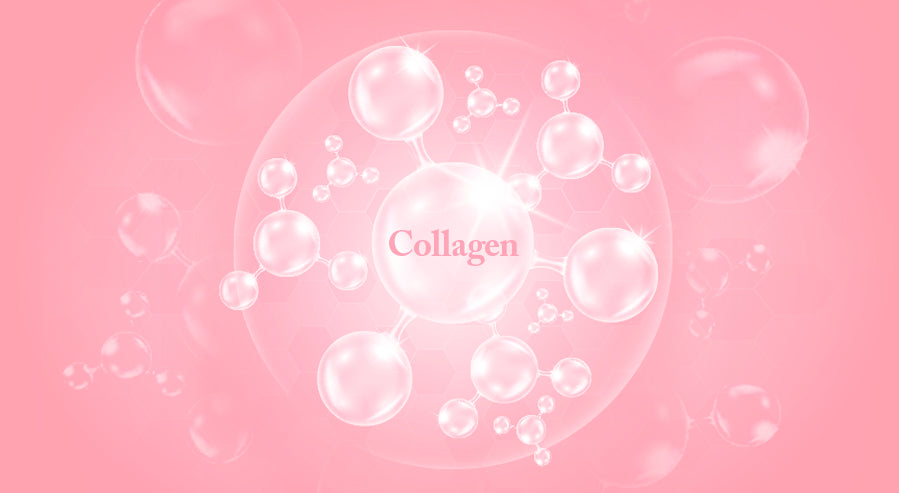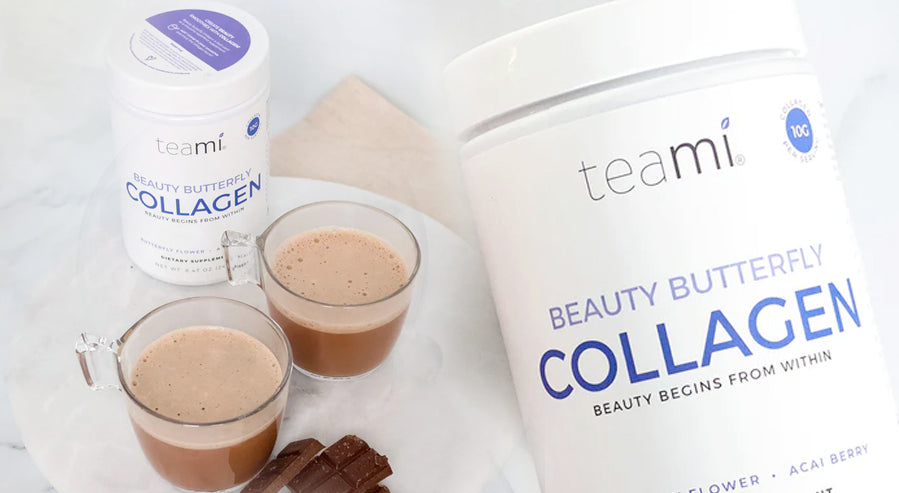FAQ: What does “Bioavailability” Mean With Collagen Supplements?

We live in a medically complicated time since diseases and illnesses are growing to new levels of complexity. Therefore, it should not be surprising that there is a newfound fascination with improving our overall health. Human health is shockingly fragile and is subjected to new hazards annually, making health management difficult.
There are hundreds of thousands of different pharmaceuticals available that treat a large number of conditions and issues. Some medications are more intense than others and are designed to handle more advanced medical issues. The problem with these pharmaceuticals is that they are designed to treat conditions too advanced to be corrected with our body's natural resources. Additionally, they are not meant to handle certain cosmetic issues.
For people dealing with less complicated conditions or issues, namely cosmetic concerns, using pharmaceutical-grade medication might be too much for a minor issue. Fortunately, we can use supplements to treat cosmetic and low-intensity conditions. One of the most common supplements in circulation is collagen to treat skin problems. Collagen supplements have been used for several conditions and issues affecting countless people.
Unfortunately, there are several misconceptions and misunderstandings about how supplements and medication work. Specifically, the significance of bioavailability as it pertains to supplements and medication. Few people recognize bioavailability's role in healthcare and supplementation, but that does not diminish its significance.
What is Bioavailability?
The term "bioavailability" usually evokes thoughts of science-fiction or similar concepts due to the strange name. However, bioavailability is an important and very real component of biology that determines how effective the medications and supplements we consume are. Despite the significance of bioavailability, the average person does not have an in-depth understanding of the concept or its role.
The simplest explanation of bioavailability is that it accounts for the portion of a substance that enters our body's circulatory system. The level of bioavailability determines whether we need higher dosages to feel the effects or lower dosages to prevent toxicity. Recognizing the bioavailability of certain substances helps determine whether we must take additional measures to secure the beneficial effects of a compound.

Furthermore, bioavailability can be further divided into 2 sub-categories based on how the collagen is administered. These subtypes are:
- Absolute Bioavailability: Absolute bioavailability is the bioavailability of a substance when it is administered directly to your bloodstream. This means intravenous (IV) injection introduces the substance to your body.
- Relative Bioavailability: Relative bioavailability is the bioavailability of a substance that is introduced to your system indirectly. This accounts for alternative mediums such as oral supplements and serves as a substitute when IV solutions are not available or ineffective enough to accomplish the goal.
Absolute and relative bioavailability have their own rates, and the absolute bioavailability of a substance can be higher or lower than the relative bioavailability of the same substance. Despite this difference, the bioavailability of a substance is valued depending on how high it is.
High bioavailability means the portion of a substance that enters our system is higher and reaches the affected parts of the body easier. Low bioavailability means the portion that enters our system is lower and harder for our bodies to disseminate. Low bioavailability requires supplementation to ensure we can secure the proper result since consuming a raw material might not be bioavailable enough to accomplish the purpose that caused you to consume it. Certain substances interact well with others which helps compensate for low bioavailability.
One of the most common examples of low bioavailability being overcome with other substances is the combination of turmeric and piperine. Turmeric is infamous for its low bioavailability, while piperine is known to increase bioavailability by nearly 2,000%. The issue is that the bioavailability of every compound is different from others, meaning we must research the supplements we use to determine the bioavailability of the new supplement. Regardless of why you need a supplement, knowing how the bioavailability affects it is important to ensure success. This begs the question of what role bioavailability plays when using collagen supplements.
What is the Bioavailability of Collagen?
Collagen is an important substance in the human body that we naturally produce in the womb to develop essential body parts. After birth, we retain a significant amount of collagen that our bodies use to sustain us for the rest of our lives. Unfortunately, the genetic condition of each person varies wildly to the point where people go through their natural resources faster than others.
Some people are genetically predisposed to skin or hair conditions that collagen is used to repair. Unfortunately, the amount of collagen in our system is insufficient to counteract every issue we encounter. Therefore, it is important to supplement collagen levels when our levels are particularly low.
The use of collagen supplements is only viable if you have a pre-existing collagen deficiency that is keeping your natural levels low. Otherwise, collagen supplements do very little to improve the quality of your hair or skin. Additionally, chronic skin conditions tax your natural collagen levels and make it difficult for your body to keep up with the demand. Collagen supplements can be viable for those situations, too, since it gives the body a little more to work with for the same goal. Unfortunately, collagen is subject to bioavailability limitations like any other substance we use to improve our health.
This begs the question of how bioavailable collagen is and whether it requires additional substances to be a viable supplement. Fortunately, collagen is a natural substance in human biology, and its bioavailability is substantial enough to stand without adaptogens. Studies assessing the bioavailability of collagen have determined that collagen's bioavailability is average in relative and absolute forms.

The relative bioavailability of collagen is 57.8%, while the absolute bioavailability is 49.6%. Taking a collagen supplement means 57.8% of the collagen will enter your system, while the remaining 42.2% is lost. Conversely, taking collagen by intravenous injection allows 49.6% of the collagen to enter your system while the remaining 50.4% is purged.
These rates are lower than traditional animal protein's bioavailability and equivalent to cereal protein's bioavailability. That said, the collagen with the highest bioavailability is the type that comes from marine life, such as fish. Fish collagen remains the most effective and popular form of collagen on the market and enjoys high bioavailability despite being lower than other animal proteins. The bioavailability of collagen means there is little need to add other substances to improve the levels and ensure an effect.
With that in mind, a caveat must be met before collagen supplements can be effective. We cannot absorb collagen in its complete form, and we must break it down into smaller components known as peptides. These peptides are what supplement manufacturers use to create their products and sell them for us to use. Fortunately, the peptides are more than enough to accomplish the goal we strive to achieve using collagen. The peptides retain the bioavailability of the original collagen compound. Therefore, there is no need to supplement further.
While understanding the bioavailability of collagen is important, if you are considering supplementation, you might wonder if collagen can help with your issue. While you might have researched collagen to some extent, you might not know what most people use it for or if those uses apply to your situation.
What is Collagen Used For?
Despite collagen being a protein we are born with, its uses extend beyond the development stage of our lives. It plays a significant role in health and cosmetic treatments that have turned collagen supplements into one of the most popular tools in modern society. While supplementation has limitations, it can improve your health and appearance in the short term for low-level issues. Understanding collagen's benefits can help you determine whether it is worth investing in for your needs. If collagen is up for consideration, the odds are high that you are dealing with something it can help with, but it is important to know the limitations of these substances before you start using them.
The biggest benefit collagen offers is its benefits for our skin, which is not surprising since collagen is responsible for the initial creation of our dermis. Our dermal layer is the first line of defense against elemental and physical hazards, though it is not as resilient as armor. Over time, our skin begins to deteriorate due to age and general wear from the elements we are exposed to regularly. When this happens, it can cause our skin to lose elasticity and become wrinkled.
While this is not a major health issue, it can be unpleasant for those who want to preserve their youthful appearance. Fortunately, collagen has become an effective countermeasure for skin deterioration and premature aging. A review of 11 studies assessed the use of 3 to 10 grams of collagen to treat dehydration and skin elasticity loss. The subjects in the test groups of the studies demonstrated improved hydration and elasticity after 69 days.

Another cosmetic benefit collagen provides is improved health for our hair and nails, which require collagen to form. Both hair and nails can become brittle and frail over time, making it easy for us to damage them through simple actions we use throughout the day. Collagen supplementation has been linked to improved hair and nail health in the face of age or health-related issues with either. Collagen supplements can also improve the length our hair and nails can grow to, but only to a certain extent.
Collagen supplements are not strictly used for cosmetic health and can provide benefits for health issues relating to our joints. The joints in our skeleton are more fragile than most people realize since we put them through constant strain due to our body weight. We also go through constant movements that wear away at our joints depending on how intense our actions are. There are also several diseases and illnesses that can weaken and damage our joints and cause chronic pain. Our collagen levels protect us from one such disease called osteoarthritis. Collagen's protection is a result of its contribution to the creation of the cartilage protecting our joints.
As we age, the cartilage in our bodies wears away, and the risk of osteoarthritis spikes since there is less protection. Fortunately, collagen supplementation has been linked to osteoarthritis pain relief. A review of multiple studies assessed the use of collagen for osteoarthritis patients and discovered that the patients in the test group saw reduced stiffness and general osteoarthritis symptoms. While regular medical care for osteoarthritis is essential, collagen supplementation can help manage symptoms and reduce pain throughout the day.
Collagen supplements are very popular due to their wide range of benefits, but the key is acquiring a supplement you can trust. Finding a supplement is easier than it used to be, but ensuring it comes from a reliable vendor is essential.
Finding the Right Blend
Collagen is a powerful and extremely important protein essential to our development in the earliest stages of life. While our natural levels are doomed to deteriorate over time, the significance of collagen never does. Fortunately, the peptides used in collagen supplements are highly bioavailable to almost 60%, making supplementation easy. We can use collagen supplements to improve cosmetic issues and general health, making it one of the more popular tools in modern society. Unfortunately, acquiring a supplement from a reputable vendor can be more difficult than it should be, thanks to certain unsavory elements taking advantage of the demand.

We at Teami realize the importance of having access to quality, natural supplements that can provide the benefits you need without risking low-quality products. Whether you are looking for collagen to help with cosmetic issues or health complications, finding a collagen supplement you can rely on is important. Our Collagen Beauty Essentials can provide the assistance you need for any collagen-related cosmetic issues. Like standard collagen supplements, the protein remains highly bioavailable and uses pure marine collagen peptides to maximize efficiency. We encourage you to visit our website and let us help you find the tool you need for your beauty and health needs. After all, finding the right blend is a Teami effort!
Subscribe to our Newsletter
Subscribe to our newsletter and get 10% off your first purchase
 Instagram
Instagram



